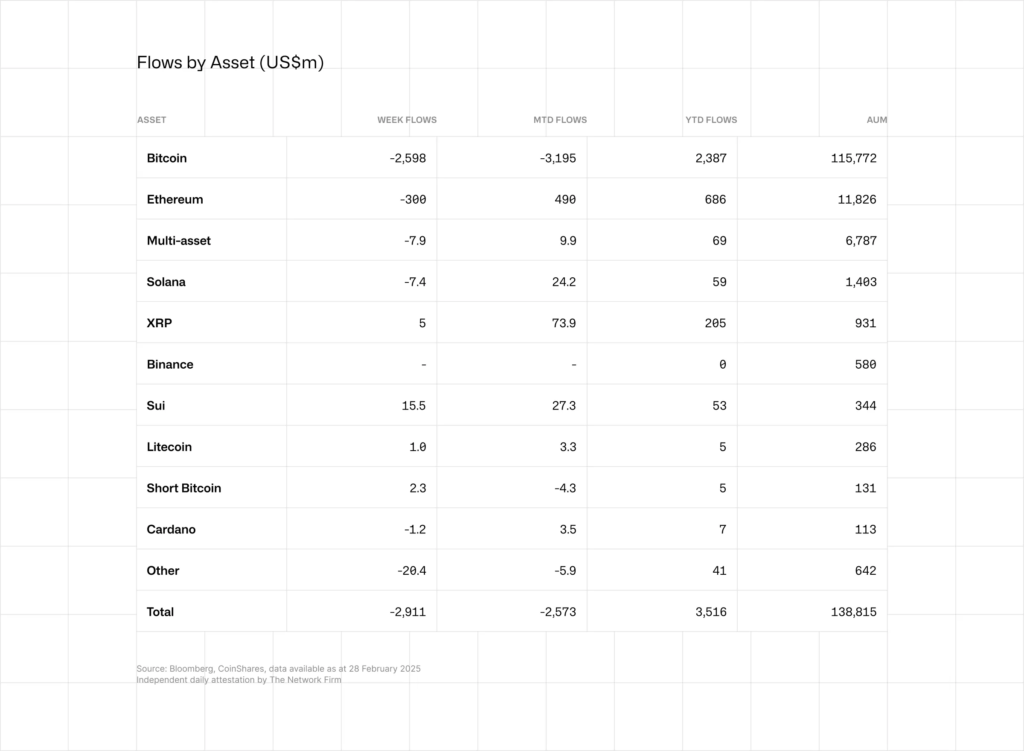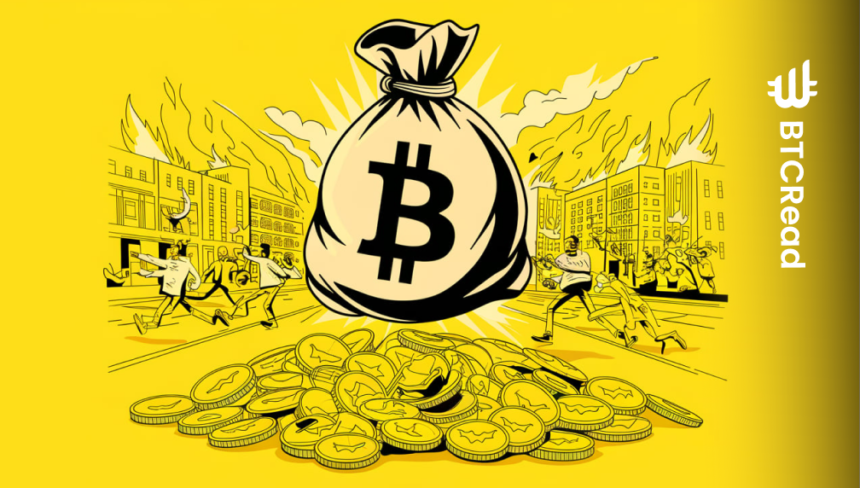The crypto market saw a major sell-off last week, and exchange-traded products (ETPs) lost a record $2.9 billion, according to a report by CoinShares. This marks the third week of consecutive outflows, now amounting to $3.8 billion.
There were several reasons for this massive outflow. There were security issues after the recent hack of Bybit. The U.S. Federal Reserve adopted a more hawkish stance on interest rates, making investors cautious. Before this dip, crypto ETPs had seen 19 weeks of consecutive inflows, amounting to $29 billion. Now, several investors seem to be cashing out their profits, while others are losing confidence in the market.
Bitcoin suffered the most from this market shift. Investors withdrew $2.59 billion from Bitcoin-related ETPs, showing a significant decline in confidence. Meanwhile, short Bitcoin products, which benefit when prices drop, saw minor inflows of $2.3 million.

Ethereum also took a hit, recording a massive $300 million outflow. Investors seem uncertain about the future of the second-largest cryptocurrency. Other assets like Solana and Ton also took a hit, recording outflows of $7.4 million and $22.6 million, respectively.
The sell-off was not across the board everywhere. The United States was leading the outflows, with investors pulling out $2.87 billion. Switzerland and Canada also lost big, with outflows of $73 million and $16.9 million, respectively. However, German investors did the opposite. They took the price dip as a buying opportunity and invested $55.3 million into their crypto portfolios.

Some cryptos still attract investors
Despite the overall bearish trend, there were some digital assets that performed well. The best performer was Sui, which attracted $15.5 million in new investments. There was also support for XRP, with $5 million in inflows.
Even blockchain stocks were not left out. Investors withdrew $25.3 million from blockchain equities in tandem with a broader market sell-off.
This shift in sentiment among investors is an indication of growing uncertainty. Many are choosing to lock in profits after months of uninterrupted gains. Others are worried about security risks and changing economic policies.







